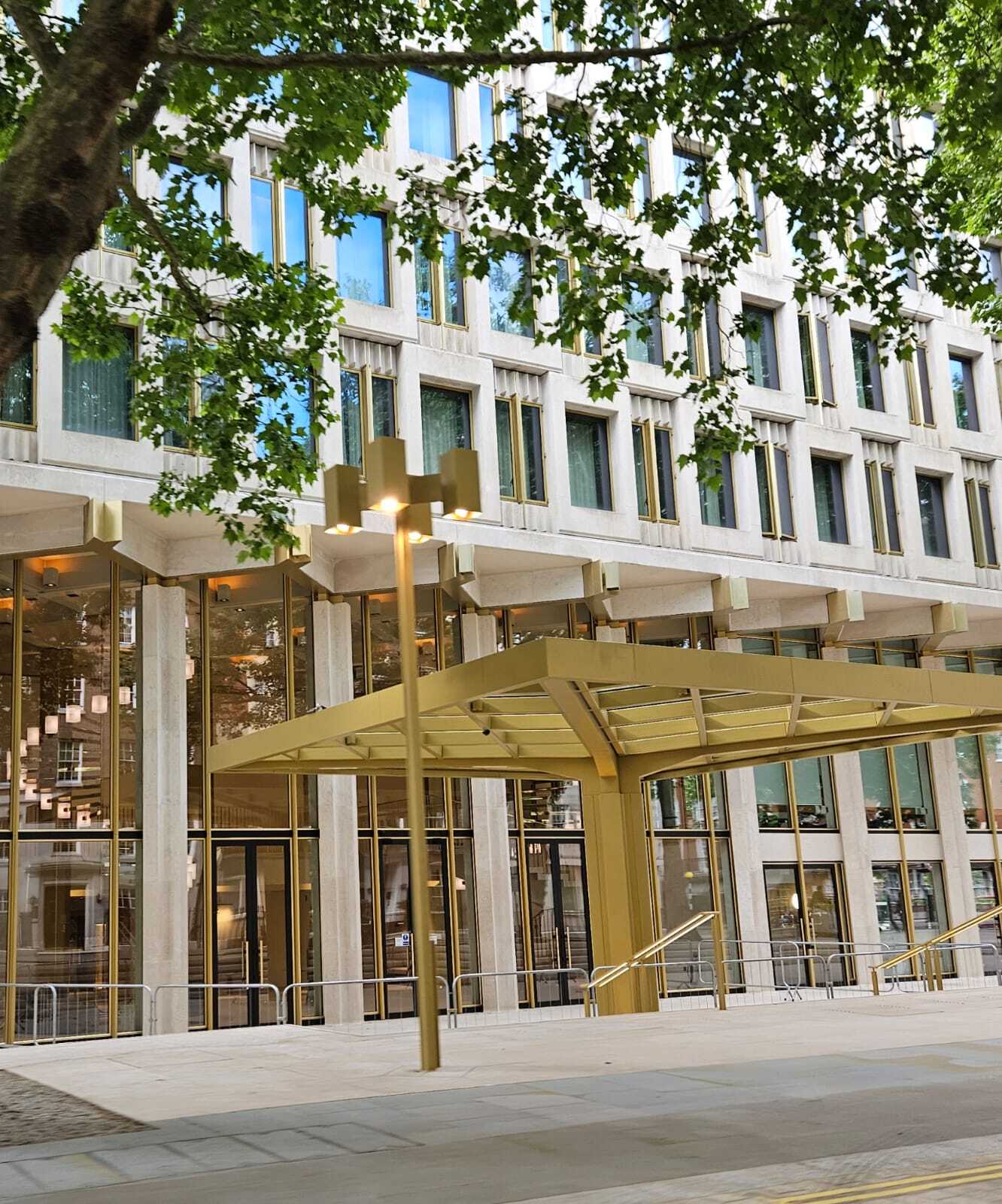If you serve an Information Notice on the Managing Agent and/or Freeholder in connection with claiming your Right to Manage they have to provide you with owners contact details.
"There is no need to put up with apathetic management, Right to Manage is a no fault process that can not only put you in control of running your block but also can build community or be a precursor to buying the freehold later on. Claiming your Right to Manage costs a few hundred pounds not thousands."
How would you like to rejoice and take control of the block management your building? Given that your apartment is a huge personal investment read on and see how we not only help leaseholders set up an RTM Company, serve notices to claim their Right to Manage, help set up the management and implement their strategy going forwards. We find that lack of repair, deteriorating building quality or unexplained high service charges are the usual motivations that drive leaseholders to claim their Right to Manage. After taking over, a not too onerous process in which you don’t even need to prove the Freeholder is at fault, the RTM gets to decide how your hard earned service charge monies will be spent.

Invoking your Right to Manage requires a simple majority of qualifying leaseholders to sign the RTM claim notice. If there are several buildings, then a separate RTM for each may be required and our Solicitors practice Ringley Law will be able to talk you through the criteria and likely future arrangements for your block.
It is The Commonhold and Leasehold Reform Act 2002 that gave leaseholders the right to control the management of their block. After the RTM ground rent still has to be paid to the Freeholder, and for dealings such as alterations or consents, whilst the RTM can grant consent, it can only do so after notifying the Freeholder and waiting 30 days. The powers claiming the Right to Manage brings include: choosing the company who will manages the block, the ‘Managing Agent’, setting the level of service charges and placing the insurance – which usually means that the RTM can reduce the insurance premium too. After claiming your Right to Manage, the leaseholders can self manage – this can work for small blocks, we have our BlockCare 300 Financial & Legal Administration package may suit, but usually for larger blocks a Managing Agent is essential – we offer two levels BlockCare 500 and BlockCare 1000 for sites with staff on site.

Online DIY self-manage tools. You set the budget and authorise invoices. We collect the service charge, do the accounts and deal with sales.
BlockCare 300
Starting from £45 per month

Expert Property Management 24/7 from your own Relationship Manager, legal Office, Final Accountant supported by our Customer Care team.
BlockCare 500
Starting from £5,000 per annum

For larger sites with staff on site, or multiple sectors or stakeholders, or sites that need turnaround change, or systems and compliance put in place.
BlockCare 1000
Starting from £10,000 per annum

Some Common Right to Manage Problems
Before Right to Manage was introduced, the only way to get better management, if things were bad was to complain, set up a Recognised Tenants Association to get a little consultation but no real say or to apply to the Tribunal for a Court Appointed Manager. The 2002 Act was the first time that the burden of proving fault was removed.

Claiming your Right to Manage
How do you claim your Right to Manage? Here is everything you need to know.

FAQs for Right to Manage
Got a question? Maybe it has been asked before. Click below to view all the Frequently Asked Questions related to Right to Manage.
Right to Manage Made Simple
Right to Manage is an attractive and long term proposition for leaseholders empowering them to manage their block of flats how they want. Wherever you are in your RTM journey, thinking about claim your right to manage, struggling self managing, or experienced RTM Directors who want a better Managing Agent, our teams are here to help and support you. With Ringley Law there’s no risk. We deliver your right to manage or give you your money back!

Why not Claim your Right to Manage?
Ringley can help you claim your right to manage if:
-
75% of the building is residential,
-
50% of leaseholders want to,
-
the building is capable of being managed separately, (there are some restrictions where there are shared services, communal heating etc, or not physical division).
Claiming your right to manage is a relatively straight forward process because:
-
there is no need to prove that the landlord is at fault.
-
few cases ever reach Tribunal, as if you fulfil the tests your landlord cannot deny you your right to manage,
-
the process does not require a court order or your landlord's consent.
Leasehold guidance
On Ringley's www.leaseholdguidance.com website you’ll the following and more.

Article on Right to Manage
Written by our group MD, Mary-Anne Bowring FRICS.

Mary-anne Bowring
Group MD
RTM background and the basics you need to know
Is RTM right for your block?
Right To Manage – Land Mark Decision - Estate Areas
Right to Manage - we show you how
All change for right to manage
Right to Manage - Don't know your neighbours?
Right To Manage: huge scheme to be operated with property consultancy
Ringley Group signs up UK’s largest Right To Manage Estate as a client
If you don't have a management company you can claim your 'Right to Manage' instead - as this article explains.
Get rid of your Freeholder - Claim your right to manage
Block Management packages for onward management after your right to manage
Ringley's BlockCare500 a team of property professionals to work alongside new or existing RTM directors to manage your block
Ringley's BlockCare300 our admin & legal suport package for small blocks where the directors set the budget and instruct us what to pay (a little like online banking) and we take care of the demands, credit control, banking, legal paperwork when homes sell and the service charge accounts.
The key to our success is our people.
Our Block Management Team
The key to our success is our people.

BLOCK MANAGEMENT EXPERTS
With years of multi-sector experience, our teams have a deep understanding of how to drive value and manage properties large and small. Our team comprises seasoned professionals who are well-versed in navigating the complexities of property management, ensuring that your investment is in capable hands.
![]() Visit us at
Visit us at
1 Castle Rd, London NW1 8PR
0330 174 7700
solutions@ringley.co.uk
Why not give us a call and speak with one of our in-house experts?
Call us
020 4506 9030Email us
md@ringley.co.ukThere is no need to put up with apathetic management, Right to Manage is a no fault process that can not only put you in control of running your block but also can build community or be a precursor to buying the freehold later on. Claiming your Right to Manage costs a few hundred pounds not thousands.
If you serve an Information Notice on the Managing Agent and/or Freeholder in connection with claiming your Right to Manage they have to provide you with owners contact details
How would you like to rejoice and take control of the block management your building? Given that your apartment is a huge personal investment read on and see how we not only help leaseholders set up an RTM Company, serve notices to claim their Right to Manage, help set up the management and implement their strategy going forwards. We find that lack of repair, deteriorating building quality or unexplained high service charges are the usual motivations that drive leaseholders to claim their Right to Manage. After taking over, a not too onerous process in which you don’t even need to prove the Freeholder is at fault, the RTM gets to decide how your hard earned service charge monies will be spent.
Invoking your Right to Manage requires a simple majority of qualifying leaseholders to sign the RTM claim notice. If there are several buildings, then a separate RTM for each may be required and our Solicitors practice Ringley Law will be able to talk you through the criteria and likely future arrangements for your block.
It is The Commonhold and Leasehold Reform Act 2002 that gave leaseholders the right to control the management of their block. After the RTM ground rent still has to be paid to the Freeholder, and for dealings such as alterations or consents, whilst the RTM can grant consent, it can only do so after notifying the Freeholder and waiting 30 days. The powers claiming the Right to Manage brings include: choosing the company who will manages the block, the ‘Managing Agent’, setting the level of service charges and placing the insurance – which usually means that the RTM can reduce the insurance premium too. After claiming your Right to Manage, the leaseholders can self manage – this can work for small blocks, we have our BlockCare 300 Financial & Legal Administration package that may suit, but usually for larger blocks a Managing Agent is essential – we offer two levels BlockCare 500 and BlockCare 1000 for sites with staff on site.
-
What is right to manage?
The right to manage is a legal right that gives eligible tenants the power to take over the management of their building from their landlord. This includes the right to appoint a managing agent, set service charges, and make decisions about how the property is run.
To be eligible for the right to manage, tenants must meet certain criteria laid down in the legislation. In most cases, all of the tenants in a building must be eligible and must agree to take part in the process.
The right to manage is seen as a way of giving tenants more control over their homes and ensuring that buildings are well-maintained and run efficiently. It can also lead to significant savings on service charges.
-
How does right to manage work?
The right to manage is governed by the Commonhold and Leasehold Reform Act 2002. This gives eligible tenants the right to take over the management of their building, without having to go to court.
Once these criteria are met, the tenants can serve notice on the landlord, stating their intention to take over the management of the property. The landlord then has 21 days to respond. If they do not respond, or if they object to the notice, the tenants can apply to the First-tier Tribunal (Property Chamber) for a decision.
If the First-tier Tribunal decides that the tenants are entitled to take over the management of the property, they will issue a management order. This gives the tenants the power to appoint a managing agent, set service charges, and make decisions about how the property is run.
-
What are the benefits of RTM?
There are a number of benefits to taking up the right to manage, including:- More control over the management of your building
- The ability to appoint a managing agent of your choice
- Reduced service charges
- Better maintenance and repairs
- A say in how your building is run
-
Can RTM buy a freehold?
The right to manage does not give tenants the right to purchase the freehold of their building. However, eligible tenants can join together and form a company which has the right to buy the freehold under the Leasehold Reform, Housing and Urban Development Act 1993.
This is known as collective enfranchisement and gives tenants the opportunity to purchase the freehold of their building and extend their leases. In order to be eligible, tenants must meet certain criteria laid down in the legislation.
If you are considering taking up the right to manage or collective enfranchisement, it is important to seek professional advice from a solicitor or surveyor with experience in this area.

Before Right to Manage was introduced, the only way to get better management, if things were bad was to complain, set up a Recognised Tenants Association to get a little consultation but no real say or to apply to the Tribunal for a Court Appointed Manager. The 2002 Act was the first time that the burden of proving fault was removed.
Overall, the Right to Manage legislation has been a resounding success – so long as leaseholders remain committed to the responsibilities of acting as landlord and apathy does not set in. It is important to make sure that processes are put in place to invite all new owners to become members, long after the RTM became effective – so that costs are fairly shared. At Ringley we include RTM Membership Forms within our sales packs to ensure that all are invited to become members and are aware that by doing so they get a say. Other tricks to drive membership can include: discounted boiler or heating system servicing for RTM members – and a higher price for those who are not. The best way of course is the energy and outreach of the RTM Directors who live on site.
At Ringley we will help new RTM Company Directors get to grips with what it means to wear several hats: a company director, an RTM member and a leaseholder, as well as the accounting complexities of budgeting not only for your service charge but also your RTM Company costs and signing off both RTM and service charge accounts. The former have to be submitted to Companies House annually as does a Confirmation Statement, the latter must be served on all service charge payers and the fine for not doing so is £2,500. So unless a property expert yourself it is essential you have an experienced and established Managing Agent by your side to help you nip issues in the bud swiftly and professionally as well as to keep you at arms length from leaseholders on site approaching you hoping that you can write off their service charge arrears. Having an experienced RTM Managing Agent enables you to rebut challenges by saying that the Managing Agent has a duty to implement the lease and follow the RICS Code of Best Practice for Managing Residential Property.
To ensure the block is funded and then managed professionally once your RTM becomes live, you may need Ringley Law to serve a Section 92 Information Notice to get disclosure of contracts and contractors in place and to establish what the transition accounting arrangements will be. Thereafter the advantage of employing a professional Managing Agent experienced with RTM’s is that your role becomes scrutiny and the Managing Agent’s dealing with the day to day activities. The goal of course being to protect the long term value of your investment as well as bring you savings on your insurance premiums and work alongside you in improvement projects such as PVC window replacements, solar panels or anything else you have in mind.
-
Step 1 - Understand what RTM Company structure(s) you will end up with
A common misunderstanding is when there are multiple blocks of apartments within one development scheme. Each individual self-contained building or a self-contained section of a block may end up with a separate Right to Manage Company.
Want help setting up a Right to Manage company? Share some details and we will send you a proposal.
FORM > email to law
-
Step 2 – Be fully aware of the investment associated with Right To Manage
Manging a development through a Right to Manage Company will create a few additional annual costs, such as the cost of preparing the RTM Company accounts, the cost of any Directors & Officers insurance that you want to put in place to cover the liability of the RTM Company Directors and the cost of a Company Secretary to deal with the company formalities such as filing the RTM Company accounts and preparing and filing the annual Confirmation Statement both of which have to be filed wat Companies House. These costs are not service charge, as they were not conceived when the leases were drawn so have to be funded via a separate RTM Budget split between the RTM Company members.
Some Managing Agents simply get it wrong by thinking that the RTM Company costs can just be put through the service charges – doing so would expose the RTM Directors to potential claims. This is where an professional Managing Agent comes in to manage budgets and ensure compliance in all areas.
-
Step 3 – Absence of initial funds
Vital repairs or essential maintenance may be required before service charges are recovered. In this instance, it is important to first find out what funds are held by the Landlord in relation to the management of the block. If there aren’t enough funds it will be necessary for the Right to Manage contributors to raise monies quickly. There are two ways to do this: firstly, to see what the lease provides for, is it necessary to wait for the next budget, can a new budget be substituted during the service charge year, or an interim collection raised, else company members contributions could be an option. Either way, cash planning is important, and this is where a professional Managing Agent should be supporting you.
-
Step 4 – Good Block Management
Another potential issue is inexperienced Right to Manage Leaseholders who are not aware of the responsibilities, management functions and liabilities of running a Right To Manage block. Poor management can lead to repairs not being carried out, low quality or expensive contractors and insufficient service charges collected. All these issues can be avoided by employing the services of a professional and established Managing Agent who has robust procedures and rights of audience in Court to make light of service charge recovery. Click here to read more about service charge recovery procedures.. Also there is the reserve planning for future cyclical works, compliance with plant and equipment maintenance, each to their own relevant British Standard as well as allthe organising of day to day repairs, very importantly, transparently.
Right to Manage is an attractive and long term proposition for leaseholders empowering them to manage their block of flats how they want. Wherever you are in your RTM journey, thinking about claim your right to manage, struggling self managing, or experienced RTM Directors who want a better Managing Agent, our teams are here to help and support you. With Ringley Law there’s no risk. We deliver your right to manage or give you your money back!
Ringley can help you claim your right to manage if:
- 75% of the building is residential,
- 50% of leaseholders want to,
- the building is capable of being managed separately, (there are some restrictions where there are shared services, communal heating etc, or not physical division).
Claiming your right to manage is a relatively straight forward process because:
- there is no need to prove that the landlord is at fault.
- few cases ever reach Tribunal, as if you fulfil the tests your landlord cannot deny you your right to manage,
- the process does not require a court order or your landlord's consent.
On Ringley's www.leaseholdguidance.com website you’ll the following and more.…
| Right to manage | FREE step-by-step guide |
|---|---|
| Right to manage | See price list for costs |
| Right to manage | Free e-book to help you get more people interested |
| Right to manage | Simple flowchart of RTM process |

Articles on Right to Manage articles written by our Mary−Anne Bowring FRICS
Block Management packages for onward management after your right to manage
Need help now - talk to us about our ffixed fee management consultancy to support you through the process


Taking control is a no fault process, talk
to Ringley Law today




























